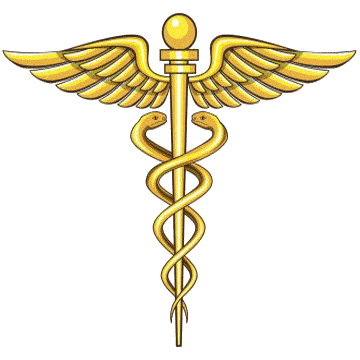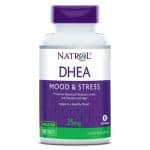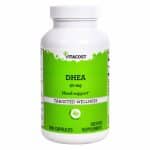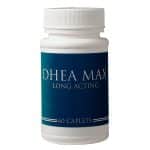Many aspects of menopause have been studied using DHEA as a treatment, such as vaginal dryness, osteoporosis, hot flashes, emotional disturbances (fatigue, irritability, anxiety, depression, insomnia, difficulty concentrating, memory, decreased libido), which appear during menopause.
Around the age of 50, women undergo menopause: the ovaries stop functioning and menstruation ceases. This period is distinguished by a rapid decline in the levels of sex hormones, including estrogen, DHEA, testosterone, pregnenolone and progesterone.
Various diseases are linked to menopause, which is a rapid decline in hormonal protection, including heart disease and osteoporosis. Many of these symptoms are caused by the loss of estrogen, but there are also effects caused by the decline in DHEA and testosterone levels in postmenopausal women.
Clinical studies
GW Bates gave 15 postmenopausal women (mean age 62) 50 mg of DHEA for 3 weeks. He concluded that DHEA supplement treatment in postmenopausal women can decrease age-related insulin resistance.
P. Casson and colleagues gave 50 mg per day of DHEA to 11 postmenopausal women in a 3-week, double-blind, placebo-controlled study. They noted that the ability of T cells to bind to insulin and cause its breakdown increased with DHEA. Improving this ability is one of the markers measuring insulin sensitivity.
A dose of 30 to 50 mg of DHEA daily improves mood, feelings of well-being and sexual appetite in women with adrenal insufficiency.
A long-term trial of DHEA on women over 60 showed a significant increase in bone density.
A study carried out on women between the ages of 70 and 79 showed an improvement in sexual desire, arousal and pleasure thanks to the intake of DHEA.
An Italian team conducted a 12-month study on 20 healthy postmenopausal women, aged 50 to 65, who were not using any hormone therapy. The subjects were divided into two groups of 10 people according to age. Group A (50 to 55 years old), made up of women who have been menopausal for 3 years and group B (60 to 65 years old), made up of women who have been menopausal for more than 5 years. All patients took 25 mg of DHEA daily for 12 months. Shorter postmenopausal women showed higher levels of DHEA, DHEAS, testosterone and beta-endorphin than longer postmenopausal women. Significant changes in endocrine levels have been observed as a result of this treatment. DHEA supplement therapy eliminated the differences observed at the start of the study between the 2 groups. Plasma testosterone and dihydrotestosterone levels, as well as plasma E 1 and E 2 levels increased progressively and significantly in both groups. Similarly, the concentration of pregnenolone and beta-endorphin increased significantly for both groups. Plasma F cortisol levels gradually decreased throughout the study. Both groups also showed a significant reduction in plasma LH and FSH levels. Growth hormone (GH) and insulin-like growth factor (IGF-1) levels increased in both groups. DHEA supplementation did not induce changes in thickness in the uterine lining. The study demonstrated the efficacy of low-dose DHEA administration on endocrine and psycho-neuro-endocrine parameters at a recent or advanced stage of menopause. She also confirmed that DHEA in small doses increases the level of adrenal androgen in the plasma, which is significantly weakened during menopause. These data support and confirm the thesis that DHEA can be considered a valid treatment for the hormonal treatment of postmenopausal women, and not just as a dietary supplement.




